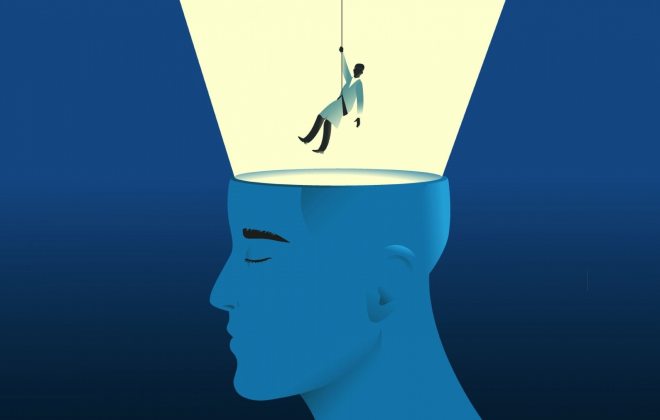


Mental health has long been identified as an important aspect of our well-being. Our mental condition affects our thoughts, feelings, actions, relationships, choices, and stress levels.
Mental health issues are quite common. Anyone can have mental health issues, regardless of age, gender, culture, or background. In fact, as per the WHO, 1 in eight people live with a mental disorder across the world.
Mental health issues are common and not a sign of weakness or failure. They can be caused by various factors and affect our mood, behaviour, thinking, and body.
Let us take a look at a few typical mental health conditions:
When a person is in a healthy mental state, they can handle life’s typical stressors, work productively, and realize their potential. However, many people face challenges that affect their mental health, such as stress, trauma, abuse, addiction, mood disorders, anxiety disorders, psychotic disorders, and more. These challenges can interfere with their daily functioning, relationships, and quality of life. Fortunately, there is a field of medicine that can help people with mental health issues: Clinical Psychiatry.
Clinical psychiatry is a field of medicine that focuses on identifying, managing, and avoiding mental health issues. Clinical psychiatrists are medical professionals who have undergone extra training in psychiatry after earning their medical degree.

They can also provide various treatments for people with mental health problems, such as ECT or TMS, which use electricity or magnets to stimulate the brain, as well as prescribe medications and conduct psychotherapy, a form of talking therapy.
Clinical psychiatry focuses on diagnosing, treating, and preventing mental health issues that affect the emotions and behaviours of people.
Psychiatrists are doctors who have successfully finished medical school and psychiatric residency training. They have the knowledge and skills to assess the underlying biological, psychological, and societal causes of mental health issues. They can also prescribe medications, provide psychotherapy, and perform other interventions to help their patients.
Clinical psychiatry plays a vital role in treating mental health issues. They can help their patients by:

One should consider meeting a psychiatrist if they experience any of the following signs or symptoms:
These signs or symptoms may indicate a mental disorder that requires professional help. However, there are other potential causes for them, such as physical ailments, medications, stressors, or life events. Therefore, it is essential to consult a psychiatrist who can rule out other causes and provide an accurate diagnosis.
Here are some of the benefits you will gain by meeting a psychiatrist.
A psychiatrist can help you by offering various treatments to enhance your mental well-being.
Some of the common treatment techniques used by psychiatrists are:
These treatment techniques are not mutually exclusive. A psychiatrist may combine or use them in different phases of the treatment depending on the patient’s condition, response, and preference. The goal of the therapy is to help the patient achieve remission, which means the absence or minimal presence of the symptoms, and maintain it for an extended time.
Recovery from mental health issues depends on many factors, such as the problem, the treatment, the support, the self-care, and the goals. However, some general points are:
Recovery from mental health issues is possible but not predictable. It depends on various factors that affect the recovery process. Therefore, it is advisable to consult a professional who can diagnose, treat, monitor, and support the person’s recovery journey.
To get help for your mental health, you should:
Good mental health is everyone’s right. Our psychological well-being affects how we feel, think, and act. However, mental health is not a fixed state but a spectrum that can change over time and in different situations. People of all ages, genders, cultures, and backgrounds can experience mental health issues.

Clinical psychiatry is a field of medicine that can help people with mental health issues. It can diagnose, treat, and prevent mental, emotional, and behavioural disorders. It can also offer various treatment techniques, such as medications, psychotherapy, ECT, TMS, and VNS. These techniques can improve the mental health and well-being of the patient and help them recover from their condition.
If you or a loved one is experiencing mental health issues, don’t be afraid to get help from a psychiatrist. They can help you find the best solution and guide you through healing. Remember, you are not alone; there is hope for a better future.
Clinical psychiatry is a vital part of the mental health field that can help address the stigma that affects people with mental health problems. By providing evidence-based and person-centred care, advocating for the rights and dignity of people with mental health problems, and collaborating with other stakeholders to reduce stigma and improve mental health, a more supportive and inclusive society can be developed.
Sources:
Spread the love, follow us on our social media channels